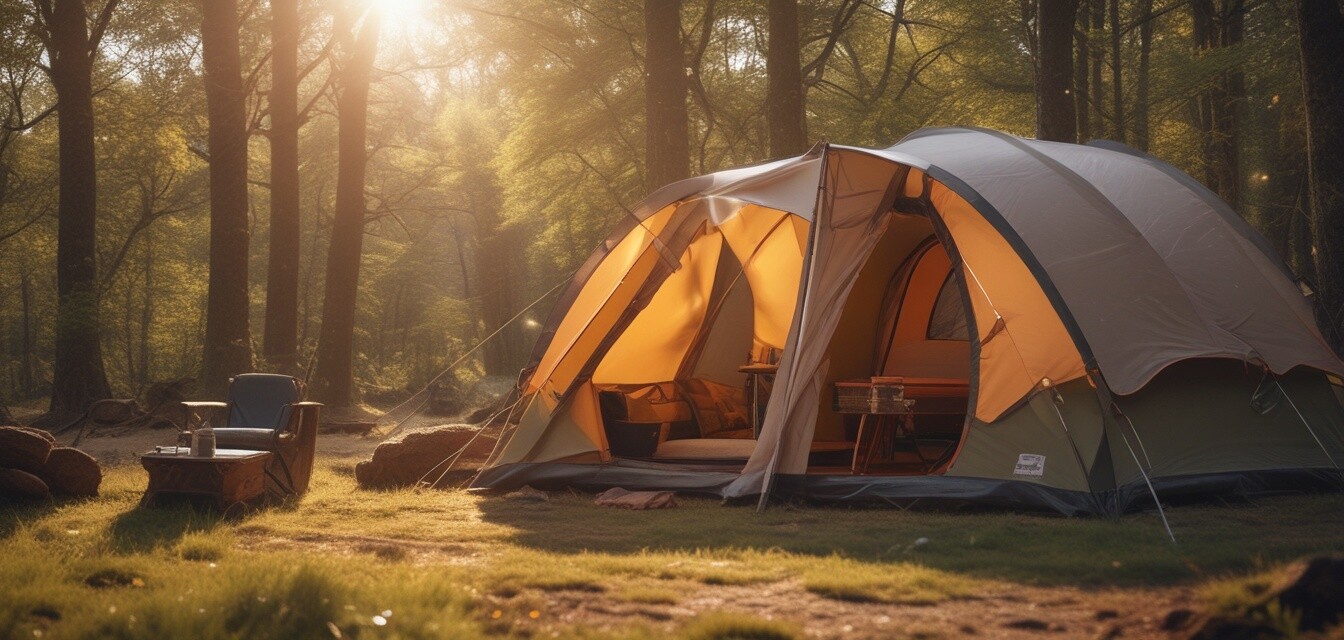
How to Educate Campers on Solar Power Solutions
- Understanding solar energy basics enhances camping experiences.
- Using real-life examples can illustrate solar power's benefits.
- Hands-on demonstrations are effective learning tools.
- Sharing tips on gear maintenance can prolong the life of solar camping equipment.
- Encouraging discussions fosters greater interest in sustainable camping solutions.
As camping enthusiasts shift towards more sustainable practices, solar power has emerged as a versatile solution for enhancing outdoor experiences. Educating fellow campers about the benefits and practical uses of solar power can transform any camping trip into an eco-friendly adventure. This guide provides insights and strategies that can help you effectively communicate the advantages of solar energy in camping.
Why Solar Power in Camping?
Solar power offers numerous benefits that improve camping experiences while promoting environmental sustainability. Here are some reasons why campers should consider incorporating solar technology into their outdoor activities:
- Sustainable energy source: Solar panels harness the sun’s energy without depleting natural resources.
- Portability: Most solar-powered devices are lightweight and easy to transport.
- Rechargeable: Sunlight is abundant, meaning campers can recharge devices as needed.
- Reduced reliance on traditional fuel: By utilizing solar energy, you can minimize the need for fuel-powered equipment.
Educational Approaches to Teach Campers
Engaging and educating fellow campers about solar power solutions can be both fun and informative. Below are some methods to share knowledge effectively:
1. Host a Workshop
Organizing a workshop at a campsite allows for interactive learning. You can cover various topics including:
- Understanding how solar panels work
- Proper setup and maintenance of solar gear
- Real-life applications for solar energy while camping
2. Utilize Visual Aids
Creating visual aids can help convey information more effectively. Consider using:
- Charts showing energy consumption of common camping appliances
- Videos demonstrating solar panel setup
- Infographics comparing solar-powered vs. traditional camping gear
3. Lead by Example
Showcasing your own solar-powered setup can inspire others. Demonstrate:
- Charging devices using solar panels
- Using solar lanterns for nighttime illumination
- Cooking with solar cookers under the sun
4. Hands-On Demonstrations
Nothing beats practical experience. Set up a demonstration that all participants can engage with:
- Let campers assemble their own solar setups.
- Show them how to adjust panels for maximum sunlight exposure.
- Encourage them to test solar lights at night.
Sharing Valuable Information
Along with teaching, sharing valuable information is crucial to cultivating a community interested in solar power solutions. Consider these approaches:
Community Discussions
Encourage open discussions about experiences with solar technology. This can include:
- Stories of successful solar camping trips
- Challenges faced when using solar-powered gear
- Recommendations for popular solar camping products
Resource Sharing
Share resources that campers can use for further learning:
- Buying guides on solar camping gear
- Information on solar-powered tents
- Guides on portable solar panels
Maintaining Solar Gear
Proper maintenance of solar equipment ensures longevity and effectiveness. Share these essential tips with fellow campers:
- Regularly clean solar panels to remove dust and debris.
- Store solar devices in a cool, dry location when not in use.
- Check connections and wiring for any signs of wear.
- Understand the battery care for devices that store energy.
Conclusion
Educating fellow campers on solar power not only enhances their camping experience but also fosters a community that values sustainability. By utilizing workshops, demonstrations, and community discussions, you can spread awareness about the practicality and benefits of solar solutions in camping. Together, we can harness the power of the sun to create unforgettable memories in the great outdoors.
Pros
- Eco-friendly energy source
- Reduced dependence on traditional fuels
- Enhances camping comfort
Cons
- Initial cost of solar gear
- Dependent on sunlight availability
- Possible performance fluctuations in various weather conditions